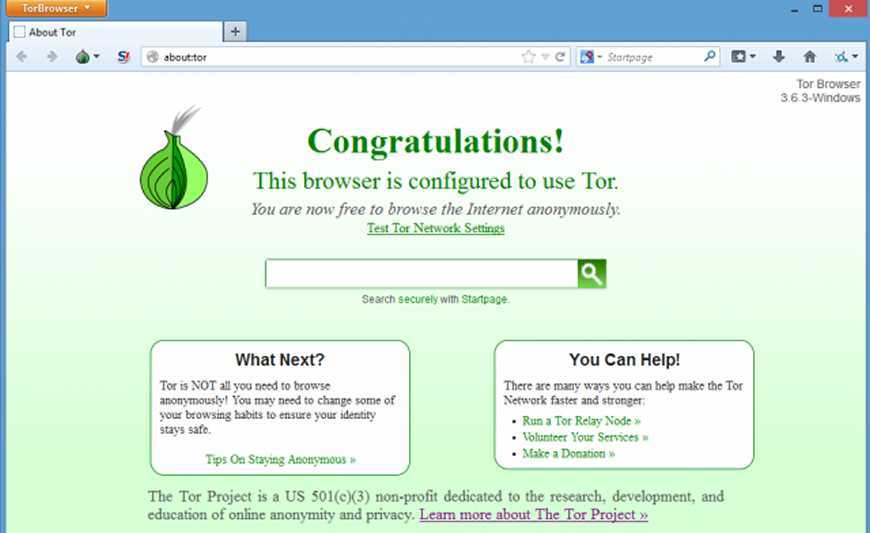The Tor network is a group of volunteer-operated servers that allows people to improve their privacy and security on the Internet. Tor Project helps in enabling anonymous communication. The name is an acronym derived from the original software project name The Onion Router.
Tor directs Internet traffic through a free, worldwide, volunteer network consisting of more than six thousand relays to conceal a user’s location and usage from anyone conducting network surveillance or traffic analysis. Using Tor makes it more difficult for Internet activity to be traced back to the user: this includes “visits to Web sites, online posts, instant messages, and other communication forms”.Tor’s use is intended to protect the personal privacy of users, as well as their freedom and ability to conduct confidential communication by keeping their Internet activities from being monitored.
Also Read : This New Computer Chip Can Self Destruct In 5 Seconds
What Edward Snowden said about Tor Project
Recently Tor Project interviewed Edward Snowden and comments shows that Snowden is great supporter of Tor. According to Snowden, Tor provides a level of safety, a level of guarantee, to the confidentiality, and in some cases anonymity of human communications. He think this is an incredible thing because it makes us more human. We are at the greatest peace with ourselves when nobody’s watching.
Here is some key excerpts from the Tor interview with Snowden from their official blog:
Tor: What would you say to a non-technical person about why they should support and care about Tor?
Snowden: Tor is a critical technology, not just in terms of privacy protection, but in defense of our publication right — our ability to route around censorship and ensure that when people speak their voices can be heard.
The design of the Tor system is structured in such a way that even if the US Government wanted to subvert it, it couldn’t because it’s a decentralized authority. It’s a volunteer based network. Nobody’s getting paid to run Tor relays — they’re volunteers worldwide. And because of this, it provides a built-in structural defense against abuses and most types of adversaries.
Tor provides a level of safety, a level of guarantee, to the confidentiality, and in some cases anonymity of human communications. I think this is an incredible thing because it makes us more human. We are at the greatest peace with ourselves when nobody’s watching.
Tor: Can you talk about how the world would be different if Tor did not exist?
Snowden: Without Tor, the streets of the Internet become like the streets of a very heavily surveilled city. There are surveillance cameras everywhere, and if the adversary simply takes enough time, they can follow the tapes back and see everything you’ve done.
With Tor, we have private spaces and private lives, where we can choose who we want to associate with and how, without the fear of what that is going to look like if it is abused.
What the Tor network allows is what’s called a mixed routing experience where, due to a voluntary cooperation of peers around the Internet — around the world, across borders, across jurisdictions — you get individuals who are able to share traffic in ways that don’t require them to be able to read the content of it. So you don’t have to trust every participant of the Tor network to know who you are and what you’re looking for.
Tor: Did you know that Tor is run by a non-profit organization?
Snowden: Yes, Tor has been extremely open. Almost everybody who is involved in development has an online presence; they’re involved in online engagement. You can drop into the IRC and talk to these people directly and ask them questions, or criticize them (laughs). It’s a very open and inclusive community, and I think that’s incredibly valuable.
They also have a very rich and well-supported mailing list, which is very helpful for people who want to move beyond being a passive user of Tor and actually start being an active participant in expanding the network, in running a relay node from your home, or even starting to experiment with running an exit, which I think is one of the most interesting parts of the Tor experience.
Also Read : MIT Researchers Developed Untraceable SMS Text Messaging System that’s Even More Secure than Tor
From the interview its clear that first and foremost, the Tor Project isn’t exclusively for cyber criminals. Tor is for everyone who is concerned about privacy. For starters, many Tor users fear their browsing history is possibly being logged. Many sites, including Facebook, sell your browsing history to advertisers. It’s likely those ads on the sides of your social network and email accounts are the product of third-parties buying and analyzing your browsing history without your approval.
It’s common for people to turn to Tor for basic security. Often times Activists and Journalists use the utility to report injustices from enemy territory without being discovered or to better protect their sources.
At times, anonymity is important for safely utilizing basic internet functions. The utility can be an asset for citizens of countries with stringent censorship laws. In some cases, basic information is placed behind a firewall. Tor allows users can anonymously circumvent firewalls and research, say, HIV treatment or access Facebook.
Also Read : Enemies of Internet Freedom – Government Organizations Around the World who Monitor our Online Activities
Are you a Tor user, share your experience with Tor Project ? We’d love to hear from you in the comments!

